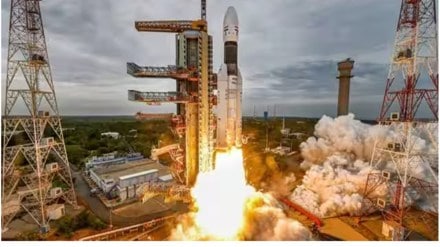By Dr Srimathy Kesan
The Indian Space Research Organisation (ISRO) has long been at the forefront of space exploration, achieving remarkable feats such as the Mars Orbiter Mission (Mangalyaan) and the Chandrayaan missions to the Moon. Building on this legacy of success, ISRO is now gearing up for its next ambitious endeavor – a mission to Earth’s enigmatic neighboring planet, Venus. This upcoming Venus mission promises to unravel the mysteries surrounding this scorching hot, cloud-covered world and contribute significantly to our understanding of planetary evolution and habitability.
The Venus Enigma
Venus, often referred to as Earth’s “sister planet,” bears certain similarities to our planet in terms of size and composition. However, it also presents some striking differences that make it a fascinating target for exploration. Its extremely thick atmosphere composed mainly of carbon dioxide creates a runaway greenhouse effect, leading to surface temperatures that can melt lead. Additionally, its mysterious, rapid rotation in the opposite direction to most other planets, known as retrograde rotation, and its shrouded appearance due to thick clouds of sulfuric acid, have puzzled scientists for decades.
ISRO’s Venus Mission
ISRO’s Venus mission aims to uncover the secrets hidden beneath Venus’ thick atmosphere and shed light on its geological history, atmospheric conditions, and potential for habitability. The spacecraft will be equipped with a suite of cutting-edge instruments designed to conduct comprehensive studies of Venus’ surface, atmosphere, and other relevant aspects.
Orbiter Module:
The orbiter module will be responsible for capturing high-resolution images of Venus’ surface and mapping its topography. This will aid in identifying various geological features such as volcanoes, impact craters, and tectonic structures. Additionally, the orbiter will study the composition of Venus’ surface, providing insights into its mineralogy and evolution.
Atmospheric Probe:
One of the key components of the mission is an atmospheric probe that will descend through Venus’ thick atmosphere, relaying valuable data back to the orbiter and eventually to Earth. This probe will measure the composition, temperature, pressure, and other atmospheric properties, helping scientists understand the dynamics of Venus’ extreme climate and greenhouse effect.
Surface Experiment:
To gain a better understanding of the processes shaping Venus’ surface, the mission includes a surface experiment. This experiment will analyze the interaction between Venus’ atmosphere and its surface, contributing to our understanding of erosion, weathering, and other geological phenomena.
Remote Sensing Instruments:
ISRO’s Venus mission will also carry an array of remote sensing instruments that will examine Venus’ atmosphere from orbit. These instruments will provide valuable data on trace gases, cloud formation, and atmospheric circulation, giving scientists a comprehensive picture of Venus’ complex climate system.
Scientific Goals and Expectations
The ISRO Venus mission holds the potential to revolutionize our understanding of Venus and its place in the solar system. By studying its atmosphere, surface, and geological history, scientists hope to answer critical questions about Venus’ past, present, and potential habitability. Insights gained from this mission could also provide valuable information about the broader processes of planetary evolution and climate dynamics.
Conclusion
ISRO‘s upcoming Venus mission marks a significant step forward in our quest to explore the mysteries of our neighboring planets. As technological advancements continue to enhance our ability to study distant worlds, the insights gained from missions like this one have the power to reshape our understanding of planetary science and the conditions necessary for life to thrive. Through its comprehensive suite of instruments and ambitious goals, the ISRO Venus mission promises to deliver groundbreaking discoveries that will captivate the scientific community and the public alike, bringing us one step closer to unlocking the secrets of Venus.
The author is Founder, CEO Space Kidz India
Disclaimer: Views expressed are personal and do not reflect the official position or policy of Financial Express Online. Reproducing this content without permission is prohibited.
